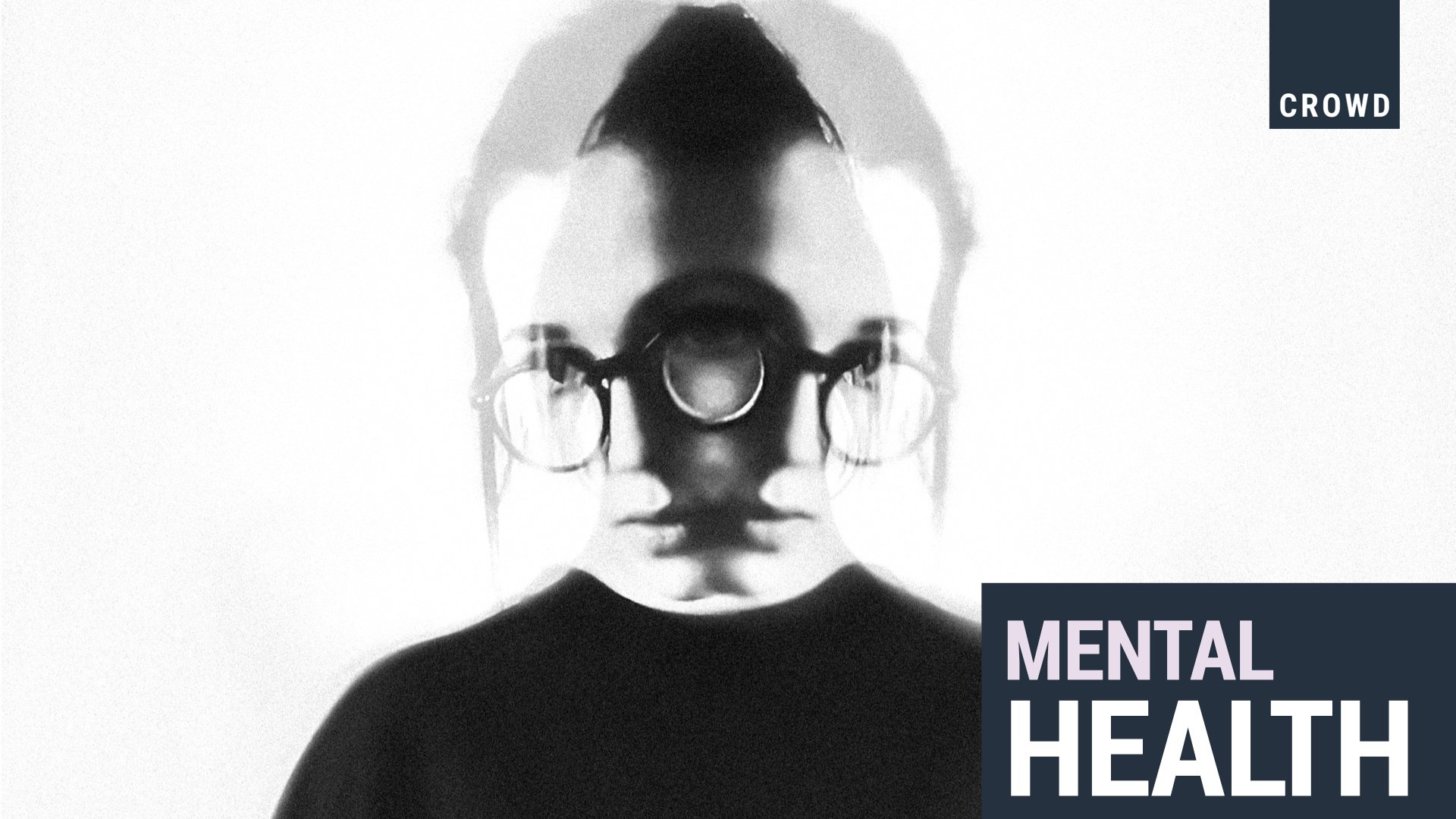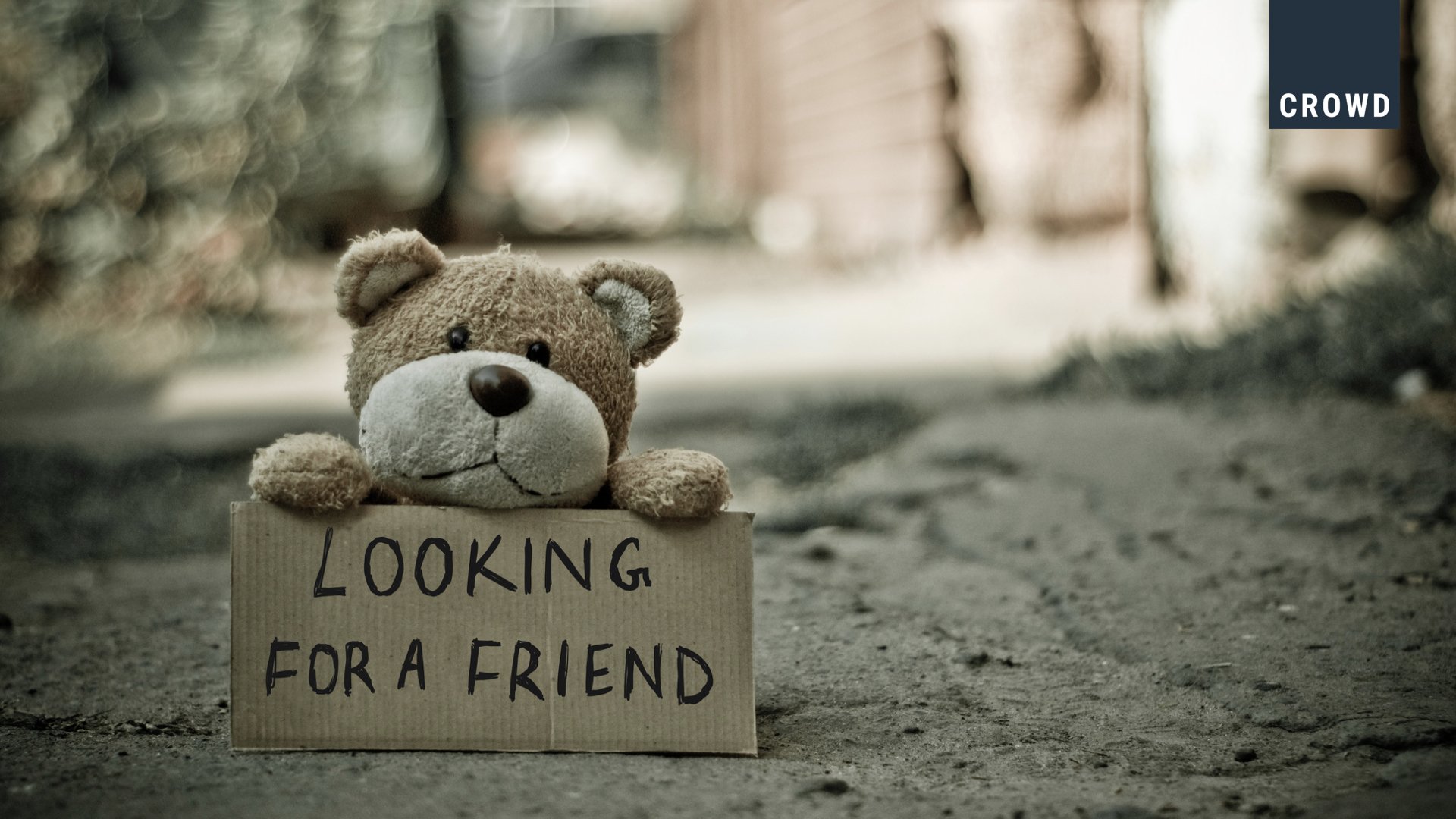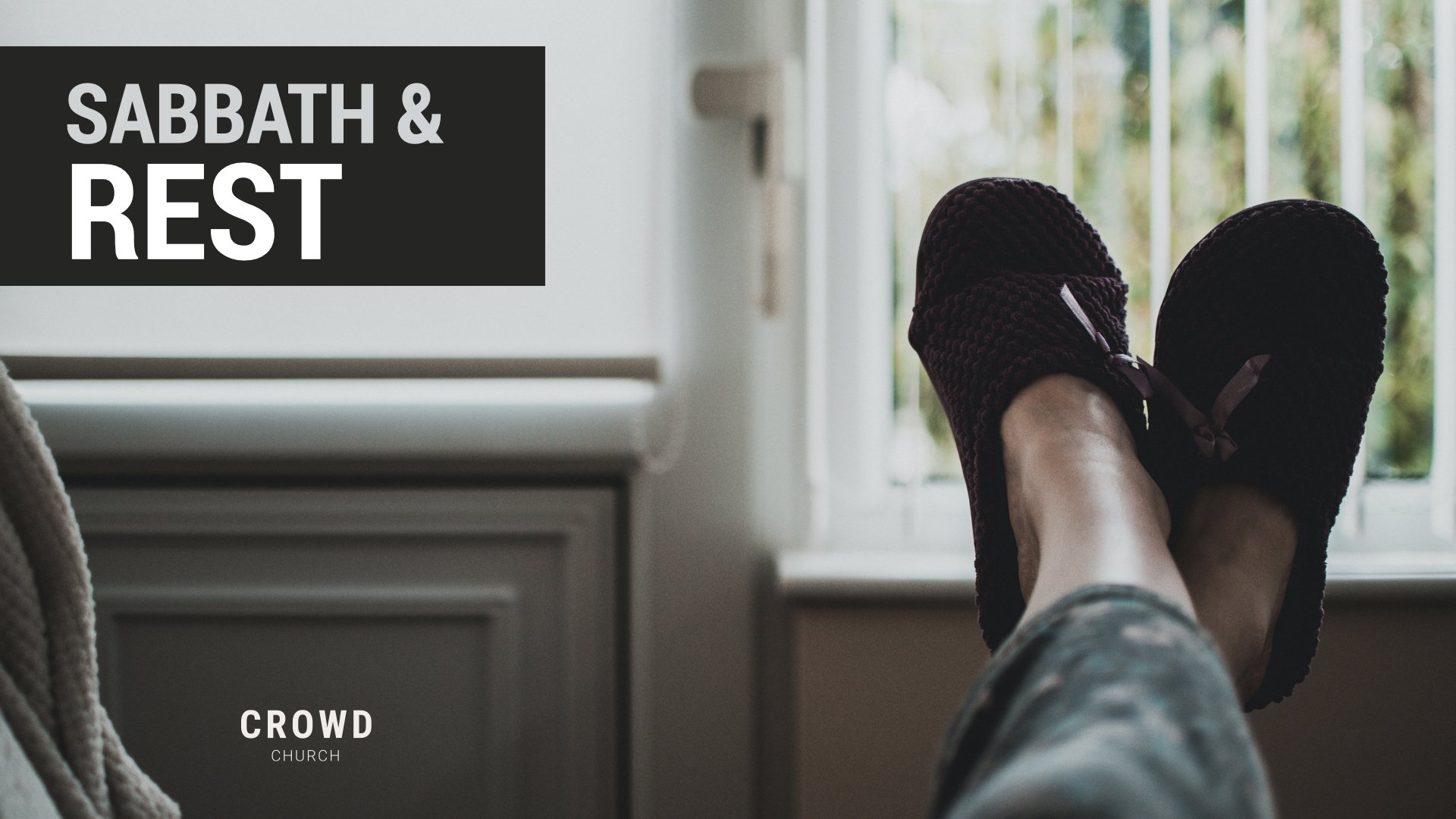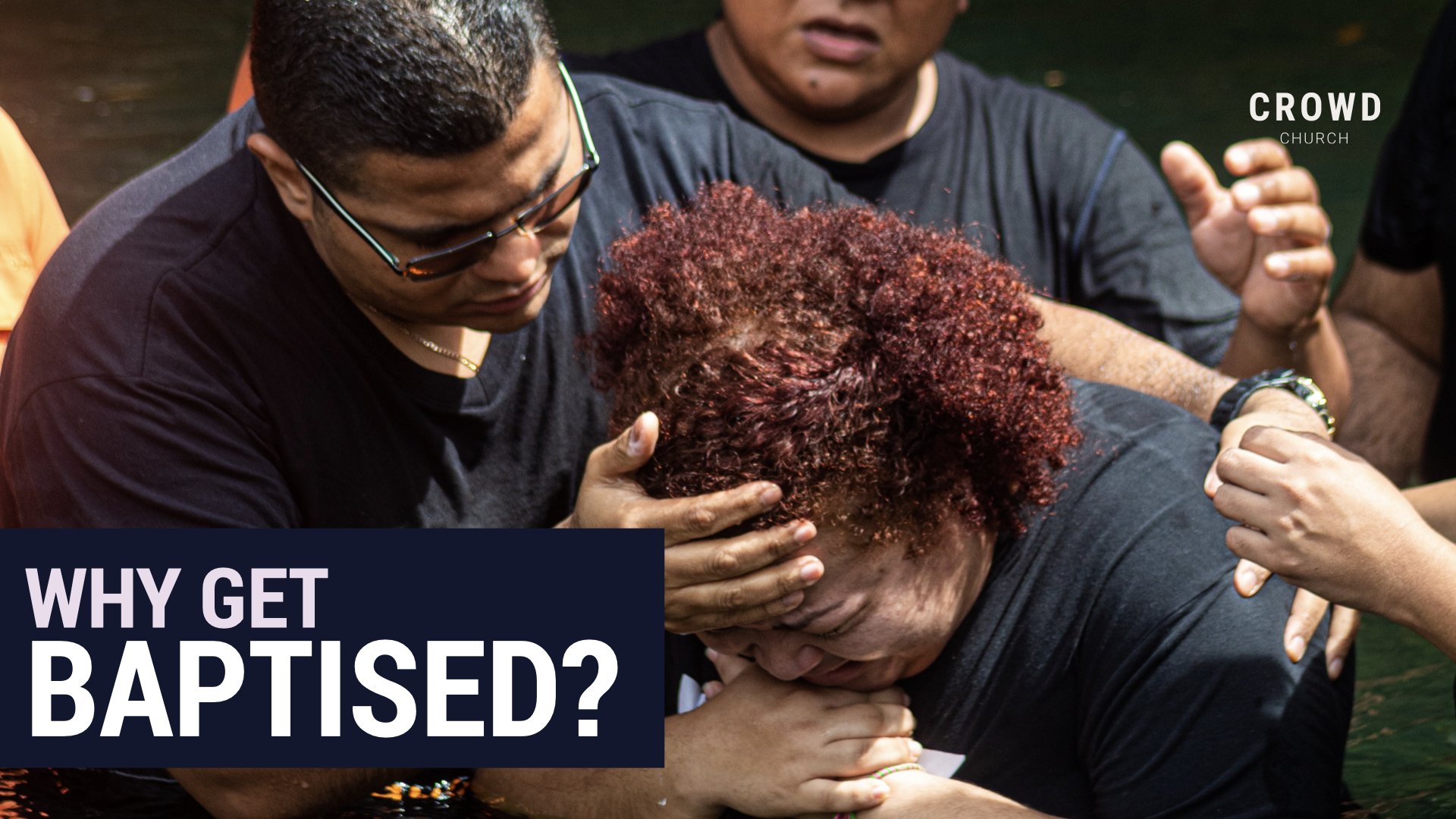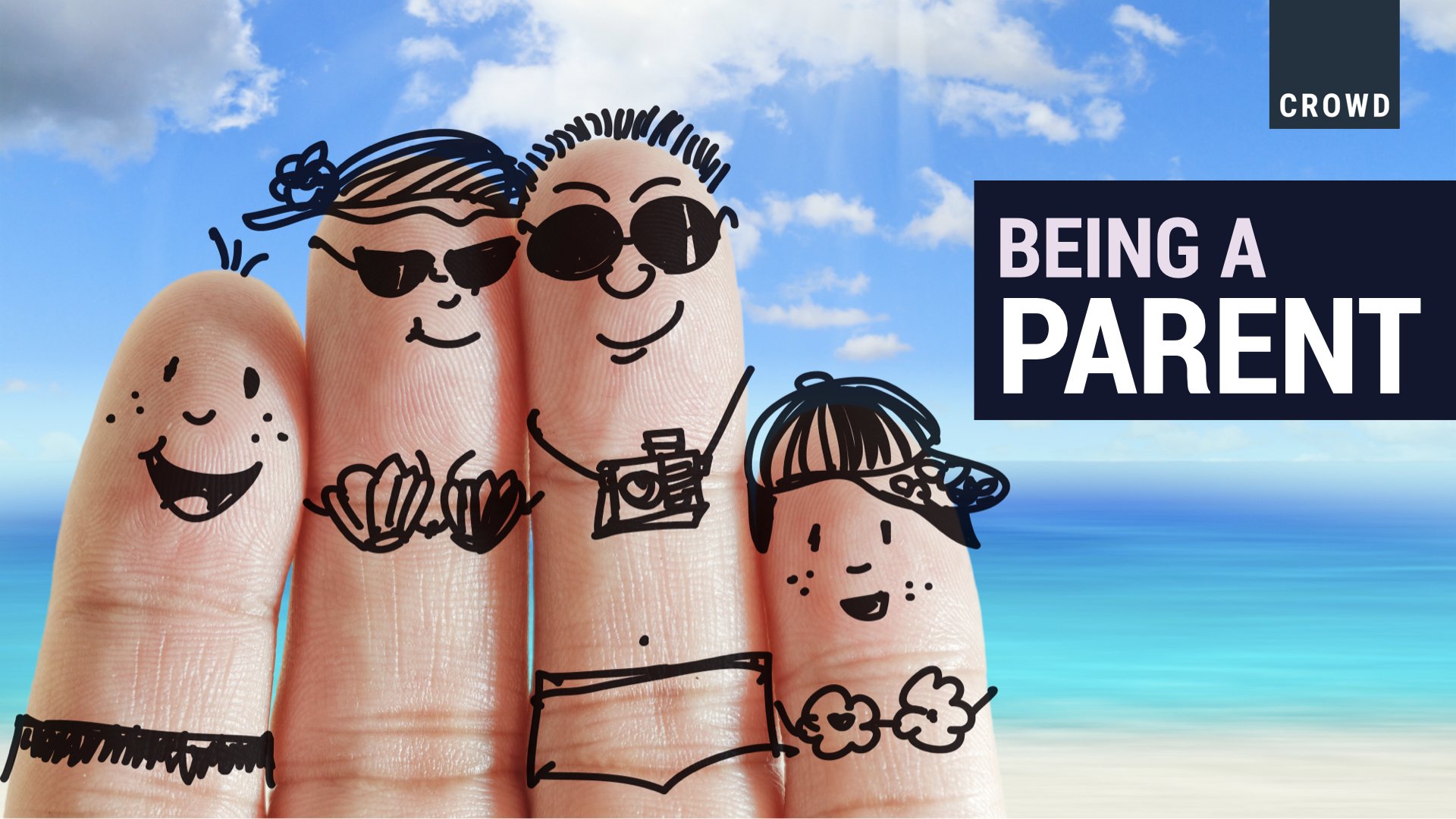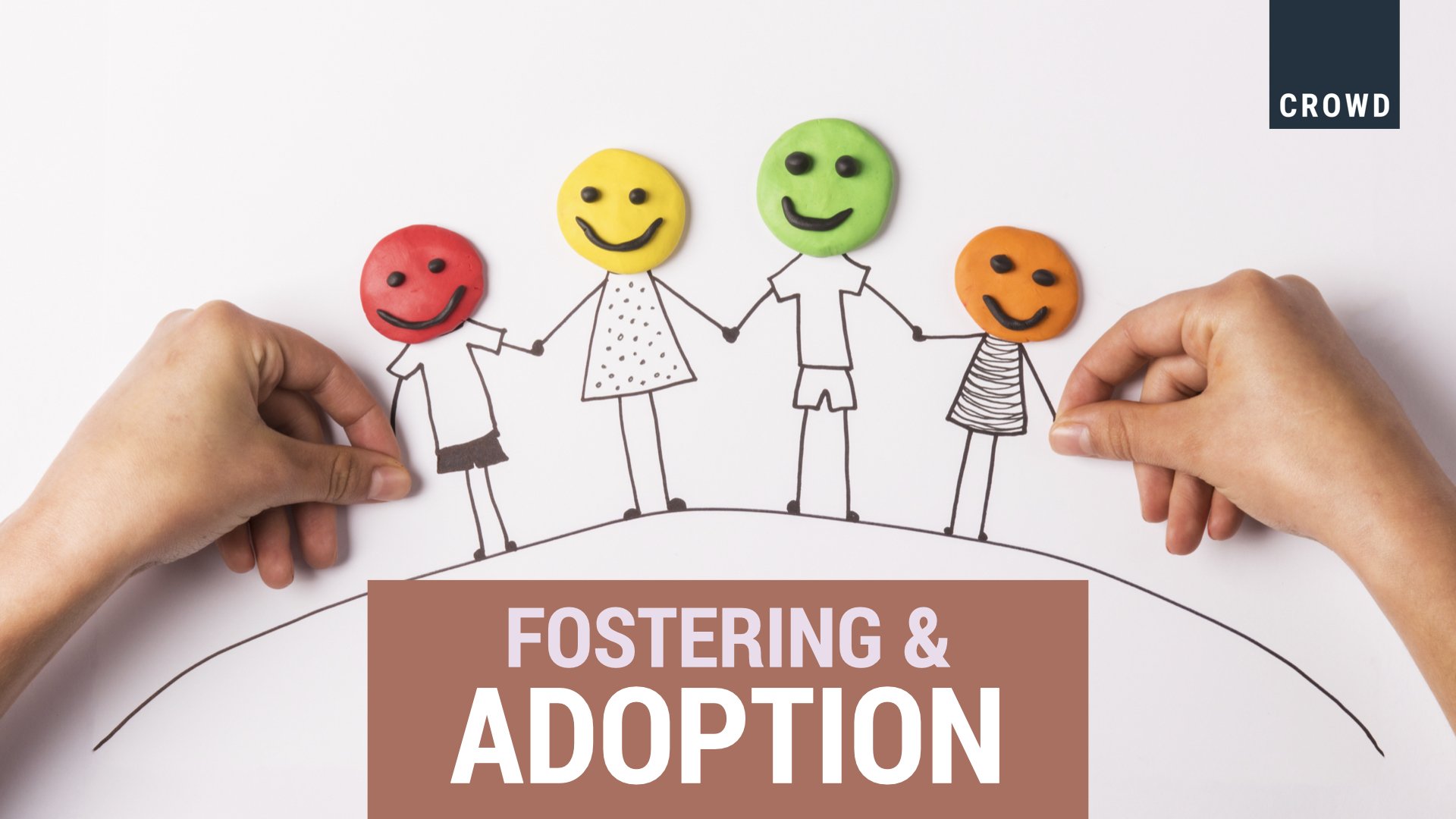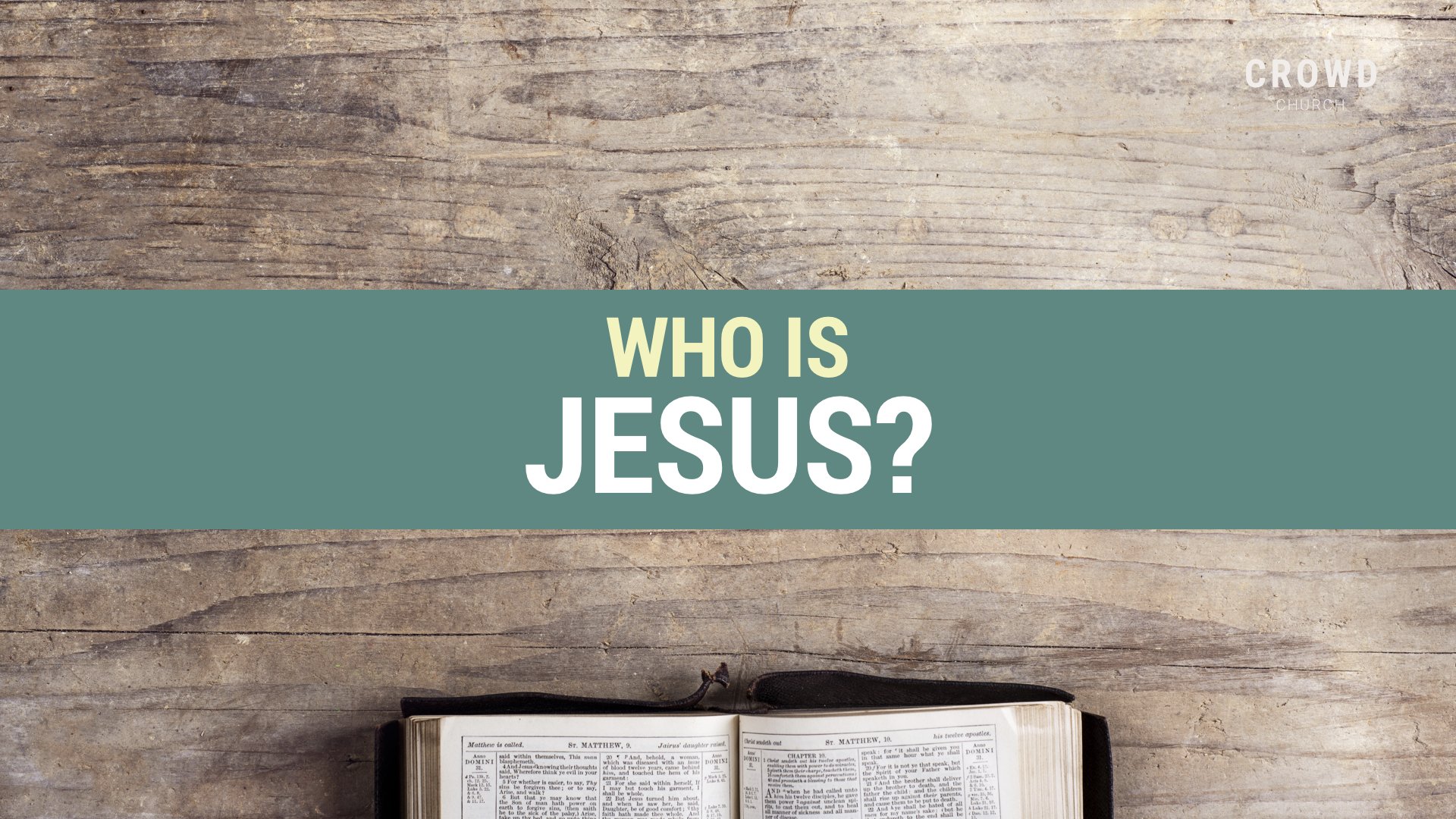Dealing with Depression | Interview with Esther Richards
Video Timeline
WELCOME
INTERVIEW with Esther Richards
WORSHIP
CONVERSATION STREET with Matt & Anna
Podcast:
Dealing with Depression
— An Interview with Esther Richards
Esther Richards: From about the age of 10 or 11, actually until the age of, probably about 20, or 21, I was really quite ill with my mental health. And I started off with a lot of anxiety around school stuff. My mom would always say, oh, she was a bit of a worrier as a kid, but then when I was probably 11, I had some issues with friends at school. And I had like physical illness symptoms, but nothing was physically wrong with me. And the doctor said maybe it's an anxiety thing.
And then that just basically got progressively worse throughout my teenage years. And it developed into major general anxiety, but also a lot of social anxiety. I really suffered from panic attacks. And then eventually depression started, probably when I was about 16, 17. I kind of just powered through it, to be honest. Lots of doctor's appointments that didn't really go anywhere. Some school counselling that I had was helpful.
But then eventually, once I turned 18, they gave me antidepressants and that helped. But basically just got through high school, essentially. I think a lot of my friends were struggling with some similar things, so there was some kind of camaraderie in that I think. And then just decided to go to Liverpool for Uni. I studied Archeology with Egyptology. And I was like, that sounds cool. I'll do that. Didn't really have much of a sense of like, oh, I really want to do this because I didn't really see my future. I just saw that I was struggling. And so I thought, well, there can't be much of a future for me. So I'll just pick something that sounds interesting because it doesn't really matter what comes next.
Matt Edmundson: Okay. There's a lot there. If you don't mind, we're going to dig in. We can't just push over some of these things. So you struggled then a lot with mental health during your teenage years and you were struggling with mental health through your A levels. And were you struggling with mental health when you were in Liverpool in the early days?
Esther: Yeah.
Dealing with Anxiety as a kid vs a teenager
Matt: Okay. So, do you know what kickstarted the anxiety? You said something that happened when you were about 11, but your mom's always called you a bit of a worrier. Had you always been anxious as a kid, do you think?
Esther: So there are different types of mental health and sometimes mental illness is caused by situations. And sometimes it's just to do with the chemicals in your brain and the way that your brain is wired. So there's some history of it in my family, again for a few generations. In terms of generally, I don't think there's anything that really kick-started it. When I was about 17, we had some family stuff go down that didn't help, but I was already pretty bad at that point. So that didn't really make much of a difference.
So yeah, I would say it was just kind of always that, and the doctors would often say to me, you will deal with this your whole life. You'll be able to get a little bit better and you'll have help, but you'll probably never come off antidepressants and you'll always be in therapy because this is just how you are. So that's kind of what I was living under, having that spoken over me even as a teenager and until I went away for my first year of Uni.
Matt: So, do you remember then being anxious as a kid before you were a teenager? Or was this something that you sort of grew into as a teenager?
Esther: I think I was anxious as a kid. I mean, I don't massively remember, but I was a bit of a worrier, and I wasn't always the most adventurous and confident, I was quite shy. Maybe my mum might listen to this and go "Gosh, she was a nightmare. She definitely wasn't quiet." I'm not sure I'm going to find out. But yeah, I always struggled to make friends and things like that, you know? Yeah. I think I always was.
And then, being a teenager is hard. I was saying this today weirdly. I do not miss being a teenager at all. It's really hard and I think it gets harder as time goes on. And so I think if there's already a bit of that in you anyway, in how you naturally respond to situations, then being a teenager often just makes it worse because there's a lot to think about and learn and work out. So I think it was there, but it was exacerbated by teenage life.
General Anxiety Vs Social Anxiety
Matt: So you've got this sort of general anxiety as you call it, the general worries about life, but you use this phrase, social anxiety. What did that look like for you?
Esther: So, I think immediately of my prom. I had a weird school system, so I went to middle school and high school, even though it was in England. So I got two proms, but in Senior Year I had a Prom and I was getting ready for it. And my friends are about to arrive and I was running around the house like a mad person trying to get everything together. And I remember standing in my parents' living room, just like breathing, really, really fast. And my mother was like, okay, you okay? Like chill up. But I couldn't put an obvious, rational reason as to why I was feeling anxious. But I knew that I was going to be around people. And I'm actually introverted anyway, but that is different to social anxiety. They're two different things. But it was like this thought of being around people just made me anxious and I couldn't explain it. And when it was bad, like really bad, it would stop me from going out and doing things.
So, especially when I was in university, there'd be days when I would just stay in my room. And sometimes I wouldn't eat or like run out to heat something up in the microwave and run back to my room because the fear of seeing other people was so much that it would stop me from leaving the house, but it was never something that I could explain. So I couldn't be like, oh, I'm nervous that this would happen because I knew it wasn't rational, which is how you know it's something that's like an illness because it's not rational and it's not quite like sink it away. It was just there. And I couldn't challenge it.
The Lowest Point
Matt: So, I mean that all sounds pretty horrendous if I'm honest with you, Esther. So how bad did it actually get for you, the whole mental health thing? How low did you actually go?
Esther: It got pretty bad. So it got worse when I went to university. Again, the first year of university can be really hard. New place, new people, new everything. And I had already had some incidences of self-harm when I was a teenager, but that got worse when I got to university. And I again had this when I was a teenager, but got worse in university where I just was like, there's literally no point in me being alive. That was kind of where my headspace was. Because I was like, well, I don't have that much of an impact. People probably wouldn't even notice if I stopped living. That was genuinely what my mind would tell me.
So it was probably around the February of my first year of university. It was three o'clock in the morning and I called my mom and she didn't pick up because it was three o'clock in the morning. I called my sister and she did pick up and I was like, I just didn't feel safe by myself because I didn't want to live anymore. But I would say there was instinct inside of me that also was like, yeah, but you should probably live. So it's really hard to explain this. It's like a weird kind of conflicting thing that happens where you're like, I don't want to be alive, but also I don't want to die. And it's really hard to explain unless you've been there.
I ended up walking at 3:00 AM to Liverpool Royal A&E. And dad, bless him, managed to wake up my parents and my dad got in the car and drove from just south of Birmingham all the way up to Liverpool, three o'clock in the morning to come and get me. But sat in A&E for about six hours because they only had one mental health person on staff that night. So they couldn't get around to seeing me. But I remember just walking on the path towards the Royal and just looking at the path and not letting myself look at the road. Because I was scared that I would walk straight into it. I was at that point where I was like, I'm done, I just don't want to live. So I was like, just look at the path, just look at the path because I didn't want to be tempted by the road, which is like, it's heavy, but it happens. It's real. It happens to people.
That was my lowest point. But my absolute legend of a dad came and picked me up and he sat with me in A&E for a bit. And then I'd been there for about three or four hours. And they came to me and said, listen, it'll be another six hours. And I was just like, I'm tired, I'm done. I'm exhausted. And I was really afraid of being admitted to the hospital. Actually looking back now, maybe I needed that, I don't know. I would have been able to say no to that if I had wanted to, but I was really afraid. And so I said Dad, just take me home. So, I went home and stayed at home for about a week and went back to university. But that was really the lowest that it got. And that was the closest it got to anything really terrible happening.
Matt: So, I mean, you've answered this question and thank you for sharing, Esther. And it's not easy stuff to talk about, appreciate it. As you were talking, the question that I wrote down in my little notebook here is how did your parents deal with all of this? Because you've moved away from home. The mental health issues have gotten worse. Your dad's obviously struggling with this, because he's getting in a car, it's three o'clock in the morning. And I feel your dad's heart because I have a daughter and you just kind of go, of course, I'm going to get in the car at 3 a.m. Why would I not? But how have they dealt with it and how have they supported you throughout this time?
Esther: Yeah. I mean, when I was a teenager, I was first struggling with it, I remember them saying to me, this is still new to us. So you're obviously going to have to be patient with us because we don't know how to deal with this. So they were super honest with me from the start, which is always helpful. And it took me a while to talk to them because there's like stigma and everything that comes with it all, but they were great. I mean, they would chat with me if I needed chatting to, and I was like, just need to have a conversation or cry or run or whatever. I don't really know how. I imagine it was really hard because I'm their kid. So obviously, it's not what they want me to experience. I don't think they ever really went into detail about how it affected them.
Just before I moved to Liverpool, I remember my mom saying to me, like, you don't have to go, it's okay. You can stay, even if you didn't, you can cope. And I think part of me can be quite stubborn so I was like, well, I'm definitely going now. But I think I saw that they really wanted to protect me, but they were amazing because they didn't hold me back. And they trusted that I knew myself enough to know whether I could do it or not, which was amazing. And I know that a lot of people don't have that and they really were like we'll just follow your lead, basically. So, and I remember that.
And then, I guess a little bit of a spoiler for later, I remember when I told my dad that I'd stopped taking my anti-depressants, I'd come off them. I remember his reaction was just awesome. Like he was so excited and he gave me this massive hug and I think it was then that I was like, oh, this has really affected them a lot when I saw it afterwards. But yeah, I don't really know. I think both my parents had experiences with mental health here and there just like everyone has, everyone goes through stuff. I think it must have been tricky, but they did a great job. They probably don't realize quite how good of a job they did. But yeah, they just trusted me to know my limit because they had already set up that I could come and talk to them if I needed them.
Reconciling Mental Health Issues with Theology
Matt: That's wonderful. And I imagine there were a lot of prayers behind closed doors, is what I imagine was going on a lot there. Okay, so here you are at your lowest point, right? You've wandered into a hospital. Your eyes are focused on the pavement and obviously, you've given us a slight spoiler, but before we get into what happened and maybe how God worked with you to come through this, how did you reconcile in your head or did you reconcile in your head, this idea of mental health, the stigma, and how did God let me get here? Because none of this should add up, right? None of it should equate. And I know a lot of people struggle with this type of thing. So how are you at this point dealing with, you know, the health issues and the theology?
Esther: Yeah. I mean, that was really hard because obviously growing up with it, with knowing the Bible and truly, truly believing that God had the best for me and that God made all the right decisions, to then be sat in a position like that. I was like, hang on a minute. This doesn't make any sense. I remember reading a verse in the Bible that says that God has not given us a spirit of fear, but of power and of love and of a sound mind. And I remember reading that very specific translation of sound mind, and I was like, well, my mind is anything but sound. I remember going to my dad and saying, this does not describe me. I was like, I am fearful. That is what I felt like.
And I remember my dad giving me this explanation that it's a promise and we live in this tension of the now and the not yet, which we like to use to explain things which doesn't necessarily always explain things, but it is true. And actually, that's God's promise over us. And that we still live in this world. And so we live in a world that is fallen, even though we are God's people who he had saved and made holy, we live in the world and we live in these bodies. And so I mean, it was really, really hard. And I remember saying to somebody, probably my dad, like the best thing about all of this is that I have learned that I definitely trust God because I think when everything's great and especially if you're young and you grow up in a Christian family, you think, yeah, I think I trust God, but it's never been tested before. Like I just assume that I do, but then I went through something that bad and I was like, well no, I really trust God. And I can trust that he's doing the right thing. I can't really attest that to anything, I'm not like, oh, great. I did a good job cause I trusted. And I do think that that was just at the back of knowing Him well and spending time with Him, but also the prayer of people around me. Because prayer is just so powerful.
I remember multiple times sitting in my bedroom just crying, like absolutely devastating, having a horrible time and just saying, God, I trust you. So I think that in some ways being completely without anything else, I was like, well, I only have God. So I don't believe that He's given me this. I don't believe that he's made me like this. So I have to trust that He'd bring me out of it. I just know that God has me. And that he will use it for good because I trust that. Because it's all I could do. And if I didn't have that, I probably wouldn't have been here today because that was the only thing I had to lean on. And so I think as hard as it is sometimes to wrestle with that, but why? We know that God is good regardless. And so we have to lean on that because that is the only thing that is going to get us through those points in life.
Matt: Wow, so your last therapy session was January 2019, which at the time of recording is, three years ago. How have the last three years been? Do you feel like you've got stronger and stronger or has it been a bit more up and down? Have there still been struggles and fights or what? How have you found that?
Esther: Kind of good, to be honest. I think that I have gotten stronger and stronger, but it's also been up and down. So I mean, it's been a weird three years because there's been a pandemic and I think that kind of bashed everyone's brains a little bit. So there was that. But I would never say at any point that any of my major symptoms have ever returned. I would never say that I've really struggled with my mental health. There have been other things I've had to work through. So when you go through something for that long, it does leave marks and behaviours. And I was talking about being a kid that I just responded to things in a certain way. Like, I think that to some extent I still do that. But it never ever goes past a healthy level of worry and anxiety. So I don't remember the last time I had a panic attack or got so anxious I couldn't move or couldn't leave the house. I think for me, getting better from mental illness doesn't mean that every single day is perfect because actually that just doesn't exist. That's not how life works.
Matt: That's just not life, is it?
Esther: Exactly. But actually, what it looks like is being able to deal with that in a healthy way. See before, when I had a bad day, say four years ago, I had a bad day. That would have affected my month. Whereas I have a bad day now and I'm up the next morning and carry on as if it's fine.
CONVERSATION STREET
With: Matt Edmundson & Anna Kettle
What is Conversation Street?
Conversation Street is part of our live stream, where the hosts (in this case, Matt & Anna) talk about Esther's story and answer questions around the topic of mental health. You can watch the conversation in the video, it starts at 36 min 37 seconds into the live stream, or you can go straight there by clicking here. This week’s questions and topics of conversation are:
What did you think about Esther's story & the stigma associated with mental health?
What can you do if you're struggling with mental health issues?
Does the Bible talk about mental health? What does it have to say?
How has your thinking been transformed by scripture in recent years? How has that transformation happened for you?
How does social media affect mental health and well-being? Why is it important to have a Sabbath rest?
Bible Verses on Dealing with Depression
Deuteronomy 31:8 - The Lord himself goes before you and will be with you; he will never leave you nor forsake you. Do not be afraid; do not be discouraged.
Philippians 4:13 - I can do all things through Christ who strengthens me.
John 16:33 - I have told you these things, so that in me you may have peace. In this world you will have trouble. But take heart! I have overcome the world.
Jeremiah 29:11 - For I know the plans I have for you, declares the Lord, plans for peace and not for evil, to give you a future and a hope.
Matthew 11:28 - Come to me, all who labor and are heavy laden, and I will give you rest.
Proverbs 3:5,6 - Trust in the Lord with all your heart, and do not lean on your own understanding. In all your ways acknowledge him, and he will make straight your paths.
Psalm 23:4 - Even though I walk through the valley of the shadow of death, I will fear no evil, for you are with me; your rod and your staff, they comfort me.
Psalm 40:1,2 - I waited patiently for the Lord; he inclined to me and heard my cry. He drew me up from the pit of destruction, out of the miry bog, and set my feet upon a rock, making my steps secure.
Isaiah 41:10 - Fear not, for I am with you; be not dismayed, for I am your God; I will strengthen you, I will help you, I will uphold you with my righteous right hand.
Psalm 34:18 - The Lord is near to the brokenhearted and saves the crushed in spirit.
Psalm 37:23,24 - The LORD makes firm the steps of the one who delights in him; though he may stumble, he will not fall, for the LORD upholds him with his hand.




